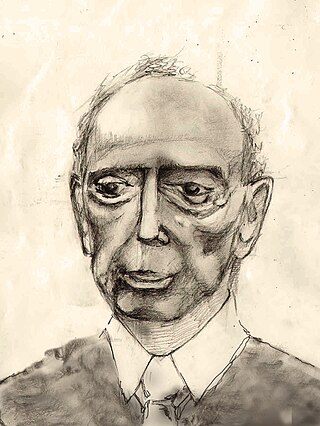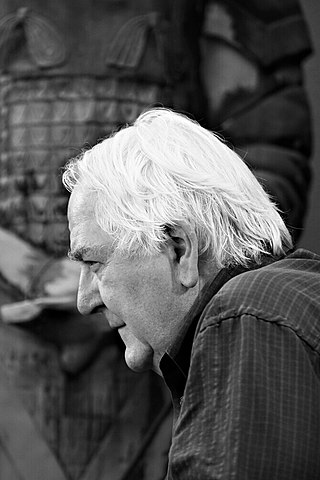
Fender Katsalidis (FK) is an architecture firm which originated in Melbourne, Victoria, Australia, and now has additional studios in Sydney and Brisbane. Founded by Karl Fender and Nonda Katsalidis, the firm has been notable since the early 1990s, producing many landmark buildings in Melbourne and other Australian cities. The firm has previously been known as Nation Fender, then Nation Fender Katsalidis and later Fender Katsalidis.
Sir Roy Burman Grounds was an Australian architect. His early work included buildings influenced by the Moderne movement of the 1930s, and his later buildings of the 1950s and 1960s, such as the National Gallery of Victoria and the adjacent Victorian Arts Centre, cemented his legacy as a leader in Australian architecture.
Bates Smart is an architectural firm with studios in Melbourne and Sydney, Australia. Founded in 1853 by Joseph Reed, it is one of Australia's oldest architectural firms. Over the decades, the firm's practices involving architecture, interior design, urban design, strategy, sustainability and research, have been responsible for some of Australia’s most recognizable buildings.

Neville Gruzman, AM was an Australian architect, mayor of Woollahra, writer and architectural activist. He is considered to have exerted a decisive influence on Sydney's architecture, mostly through his dedication to designing architecture that reacts to the landscape and to the needs of the client.
Troppo Architects is an Australian architectural practice with the aim of promoting good tropical architecture in Australia's Top End. The practice was founded in 1980 in Darwin with the aid of a Northern Territory grant to examine the history of the region's architecture.

Philip Sutton Cox is an Australian architect. He is the founding partner of Cox Architecture, one of the largest architectural practices in Australia. His work has won him multiple awards, the first being in 1963, one year after graduating from the University of Sydney.

Daryl Sanders Jackson is an Australian architect and the owner of an international architecture firm, Jackson Architecture. Jackson also became an associate professor at University of Melbourne and Deakin University.

Peter McIntyre is a Melbourne based Australian architect and educator.
Margaret Leonie Edmond is an Australian architect.
Neil Clerehan was an Australian architect and architectural writer.
Robert Raymond (Bob) Woodward was an Australian architect who gained widespread recognition for his innovative fountain designs.

Dr. Graeme Cecil Gunn AM was an Australian architect and former Dean of the Faculty of Architecture at RMIT.
Yuncken Freeman was an Australian architecture firm. Founded in Melbourne, Victoria in 1933, Yuncken Freeman grew steadily, particularly in the post-war economic boom to be a sizeable firm in Australia, with branch offices in Hong Kong as well as other parts of south-east Asia, until its dissolution during the late 1980s.
Philip Harmer is an Australian architect. He graduated from the University of Melbourne with a bachelor's degree in Architecture, and became a Fellow of the Royal Australian Institute of Architects (RAIA). Harmer has a strong appreciation for sculptural forms and spaces that are powerfully shaped or wrought; thus, his works display the cleverness of how certain materials and details are used to represent his individual persona.

Patrick Bingham-Hall is an architectural photographer. He is also an architectural writer and editor, and owner of Pesaro Publishing.

Deva House is a 1926 commercial building in Melbourne, Australia designed by Harry Norris, one of the most prolific architects in the city during the period from 1920 to 1930, and noted for his Art Deco buildings, incorporating both emerging Australian and American architectural styles.

Perrott Lyon Mathieson was an Australian architecture firm based in Melbourne, Australia. Founded by Leslie M Perrott in 1914, the firm was responsible for numerous high-profile projects from the 1920s to the 1990s, and was associated with the Perrott and Lyon architectural families, spanning three generations and eight practitioners.
Jennifer Evelyn Taylor was an Australian architect, professor, critic and author who made a significant contribution to writing on contemporary Australian, Japanese and South Pacific architecture.

Architecture Australia is a national magazine covering the practice and works of architects and architecture in Australia. It is published bi-monthly by Architecture Media, and is the journal of the Australian Institute of Architects.
Julie Willis is an Australian architectural historian and academic. She is currently Professor of Architecture and Dean of the Faculty of Architecture, Building and Planning at the University of Melbourne.









